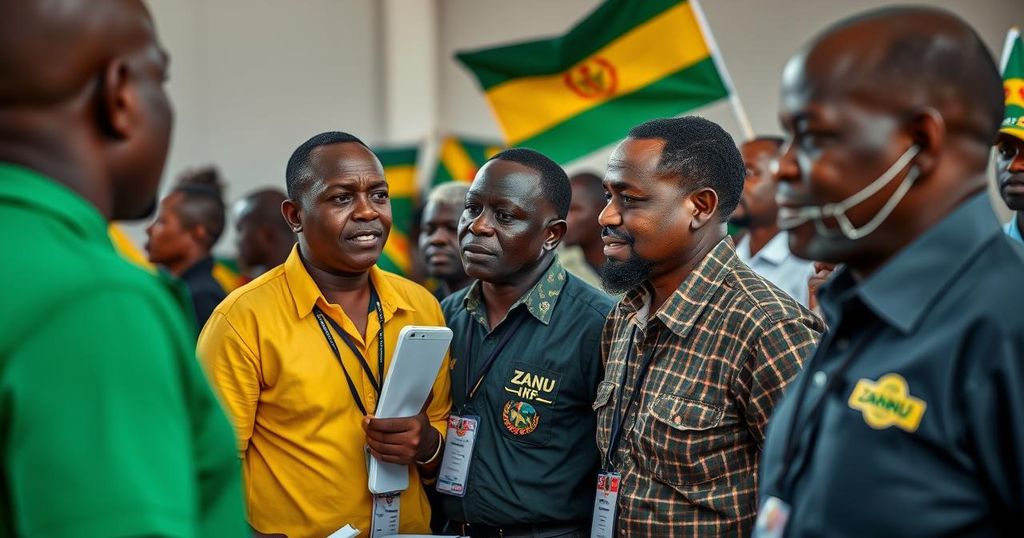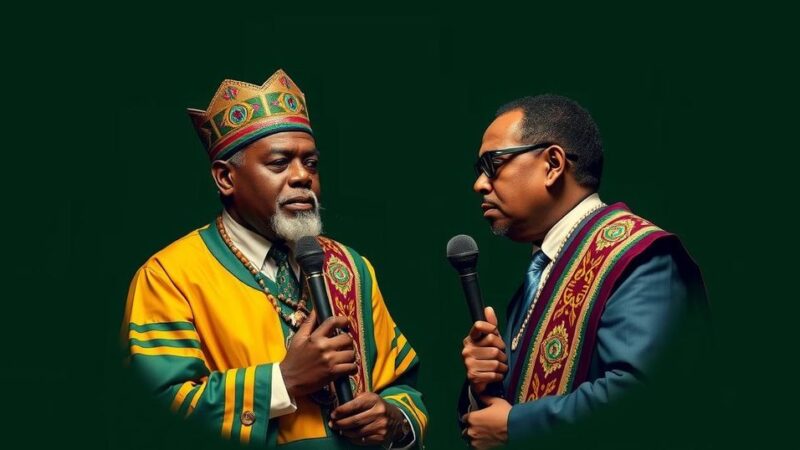Significant numbers of Zanu PF supporters voted in Mozambique’s general elections, favoring Frelimo candidate Daniel Chapo. Their participation raises questions about the election’s credibility and highlights historical alliances between the two parties. Allegations of electoral fraud were reported as both youth and elderly voters were facilitated in crossing borders to vote. Opposition figures criticized Zanu PF’s influence in the region, indicating broader implications for democracy in SADC countries.
On Saturday, a substantial number of supporters from Zimbabwe’s ruling party, Zanu PF, participated in Mozambique’s general elections, raising questions about the legitimacy of the electoral process. The participation was first reported by The Mirror of Masvingo. The votes, which reportedly favored Frelimo candidate, Daniel Chapo, highlight historical alliances between the two parties, as Frelimo played a pivotal role in Mozambique’s liberation and has supported Zanu PF during its own struggles for self-governance. Voters gathered in regions including Masvingo, Chegutu, Mutare, and Harare, with numerous allegations of electoral fraud surfacing. One voter, Spiwe Maparanyanga, expressed her rationale for voting, stating, “We have just voted in the Mozambique elections so that we might also cross the border safely when we want to go and buy goods for resale. We also like Frelimo, which we voted for.” Reports indicated that groups of young people and the elderly were provided with valid Mozambican identification to facilitate their voting for Chapo, who allegedly faced significant opposition from former RENAMO member Venancio Mondlane, a candidate popular among the youth. Edison Manyawi, a former Zanu PF councillor, openly declared his vote for Frelimo in an interview, despite the legality of such actions being questionable. “We are happy with what we did because Mozambique is our neighbour and helped us during the liberation struggle, so we would not hesitate to help them win the elections,” stated Manyawi. Opposition figures, including Job Sikhala, condemned Zanu PF’s interference in regional elections, claiming it poses a threat to Southern African Development Community (SADC) nations. He asserted, “This political party has become a danger to all SADC countries.” Moreover, he alleged that Zanu PF is attempting to influence electoral outcomes in Botswana and Zambia, particularly supporting former Zambian President Edgar Lungu in his bid for political resurgence, despite his recent ousting by Hakainde Hichilema, who has been critical of Mnangagwa’s regime in Zimbabwe. The situation illustrates the complex political relationships within the SADC region and raises concerns about the integrity of democratic processes across borders.
This article reveals the ongoing political dynamics between Zanu PF, Zimbabwe’s ruling party, and Frelimo, the ruling party in Mozambique. Historically, these parties have shared not only a political alliance born from a common struggle for liberation but also continue to influence each other’s electoral processes. The accusations of fraud and electoral manipulation in Mozambique highlight the contentious nature of regional politics, as well as the potential ramifications for democracy in Southern Africa.
In conclusion, the involvement of Zanu PF supporters in Mozambique’s elections underscores ongoing political allegiances and raises serious concerns regarding electoral integrity. As opposition politicians express alarm over the potential impacts of such interference on regional stability, the situation calls for closer scrutiny of cross-border electoral practices and their implications for democracy in Southern Africa.
Original Source: www.newzimbabwe.com






